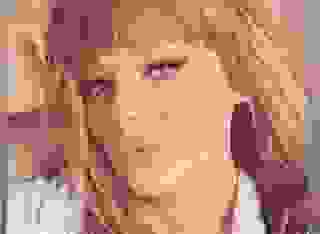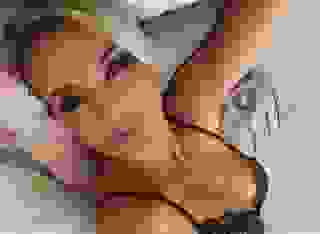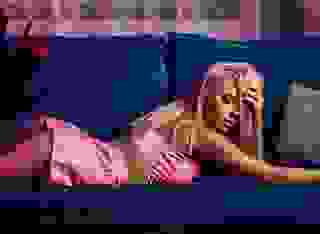Note: You can change font size, font face, and turn on dark mode by clicking the "A" icon tab in the Story Info Box.
You can temporarily switch back to a Classic Literotica® experience during our ongoing public Beta testing. Please consider leaving feedback on issues you experience or suggest improvements.
Click here"Oh," she added, "and in case you're wondering, Sal apparently is also convinced that Kelly ratted him out to you because she was jealous about Micki, so the two of them are splitsville as well."
I grinned back at her in a mixture of admiration and appreciation. "Wow, now that's a Sodom and Gomorrah payback! You're the best, Starla," I told her. "Now I guess I can go ahead and drop the signed divorce papers in the mail."
I went back to my cubicle feeling satisfied about the way things had turned out. They'd both gotten what they deserved, and they did it to themselves. All I did was expose the truth. They made their choices, and choices have consequences.
As I sat there thinking, my cellphone rang, and when I answered it a voice came on the line I didn't recognize. "David, this is John Kirby calling. I'm the dean of Arts and Sciences at Sewanee. I hate to be the one to tell you, but your father has suffered a stroke and he's not expected to last long. You need to get back here as soon as possible if you want to see him."
Starla smiled when I walked back into her office, but a look of alarm came over her when she saw my face, and she rushed to my side. "David, what's happened? What's wrong?"
"It's my Dad," I told her forlornly, "he's dying."
The dean had told me my Dad had collapsed at the end of his lecture. That was good, I thought as I drove, he'd have wanted to finish the class. They'd taken him straight to Emerald Hodgson Hospital.
It was after visiting hours when I got there, but under the circumstances they made an exception for me. The doctor warned me, but it was still a shock to see the slack expression on Dad's face as he lay there. Even though he appeared to be asleep, I took his hand in mine and held it. "I'm here, Dad," I whispered in his ear, and I thought I felt his grip tighten momentarily.
I sat there by his bedside holding his hand, and after a while I laid my head down on the blanket beside his leg. I must have fallen asleep because the next thing I felt was a nurse gently peeling my fingers away. "I'm sorry, Mr. Cowan," she said, "he's gone."
The memorial service was held at All Saints' Chapel, of course, and I was touched to see the sanctuary filled to overflowing with students, faculty and family friends. My dad had taught philosophy at the University of the South over thirty years, and there were many people who wanted to say a few words about how he'd touched their lives.
There was no burial because he'd told me long ago that he wanted to be cremated. "From dust we come and to dust we return," he'd said, "and I see no reason for worms and maggots to be involved in that process."
After the service was over and all the well-wishers had finally left, I took the urn with his ashes and drove past Monteagle through Tracy City and on to Foster Falls. Standing at the top of the falls I tipped the urn over and let the ashes spill out into the swiftly flowing water of Gizzard Creek down into the foaming pool below. He'd wanted to be reunited with the lands and waters he'd hiked and explored all those years, and it comforted me to carry out that request for him.
Afterwards, I drove back to Sewanee to the home where he'd lived for so many years. It was nestled on an acre of land at the end of a road that penetrated deep into the woods. Even after Mom passed away, Dad had managed to keep it surprisingly neat and clean, and I was glad that he'd been able to spend his last days there rather than in some impersonal assisted living facility.
I spent the next few days cleaning up the place, throwing out old papers that no longer had any significance, packing up clothing for Goodwill, mowing the yard and trimming the bushes. I didn't plan to sell the house, but I didn't think I'd have any trouble renting it to a faculty member or married graduate students. Having learned all about "Sewanee weekends" from my Dad, however, I wanted to avoid renting to undergraduates if at all possible.
Returning to Sewanee was an interesting experience. I thought it would feel odd being back in my childhood home, but instead I found myself relaxed and at ease. Maybe it was the mountain air, but whatever the case I slept better than I had in months.
A few days later, Dean Kirby called to ask me to drop by his office. I assumed that he had some personal belongings of my Dad's that he wanted to convey to me, but I was wrong.
"David," he told me when I was seated in a comfortable chair, "there's been a Cowan at this institution longer than I've been here, and it just doesn't feel right to have that end. I wonder if you'd consider coming to work at the University?"
I started to protest that I had no qualifications, but he waved me off. "I've seen your credits in a lot of publications," he told me, gesturing to a copy of The New York Times on his desk. "We offer several courses in photography as part of our major in art and art history, and we could use a guest lecturer with your experience to make the program more real-world for our students. Also, our campus photographer is retiring at the end of this semester, and we're going to need someone to take on her responsibilities as well. What we'd be able to offer you in the way of a salary certainly wouldn't match what you're earning in Los Angeles, but the cost of living in Sewanee is a little bit more reasonable, I'd guess," he said with a smile.
"Wow!" I said. "I wasn't expecting that. Give me a little time to think it over."
"That's no problem," he said. "We don't need to know for another month, and you wouldn't actually start working until the first of August. But I really hope you'll consider it seriously."
I promised him I would, and after I left his office I took a walk around the campus. The gothic architecture seemed somehow appropriate, making the school feel like a medieval enclave high above the neon and plastic world where I'd been living. Growing up I'd wanted nothing more than to head off to the bright lights of the big city; now the serenity of the campus and this lovely little town seemed very attractive.
That afternoon I drove over to Green's View to watch the sun set. Below me I could see fields intersected by rows of trees, streams, ponds, and the occasional farm house, all stretching off to the northwest. I couldn't help noticing how clear the view was; there was no brown haze clouding the air like you see so often in L.A.
"Why not do it?" I asked myself. The house was now mine and it was paid for; if I lived there rather than renting it out, my cost of living would be very low indeed. More importantly, I'd be far away from all the phoniness, the inflated egos and the pretense that I hated so much. And if I went to work for the University, I'd no longer be a parasite feeding off the illusions and dreams of other people, and I wouldn't be ashamed to say what I did for a living.
When I thought about it, there wasn't a lot I'd be giving up if I left. True, I'd miss the ocean and the beaches, and I wondered if I could find any good Thai food. And of course there was Starla, but I'd lost her already. "Maybe we can still be friends, just ones who live in different cities," I thought. And perhaps that was for the best; being around her was still tough on me.
I forced myself to drop that train of thought to think about my opportunity. "Only a few weeks ago you were complaining about your life and being trapped in a world you hate. Now you've been given a chance to escape all that and start in a whole new direction. Don't be an idiot -- grab the brass ring!"
As I walked back to my car, I noticed how quiet it was. It seemed to match the quiet and peace I felt within myself. "I must be making the right decision," I thought.
The next morning I called the dean. "I don't need to think about this any longer," I told him. "I'd like to accept your generous offer."
Now that I'd committed myself, I felt a growing excitement. There was a lot of work to do to get ready for the big change, but it was all good, all building toward a new life. There was, however, one task that I was dreading, and now that I'd made my decision it couldn't be postponed. So that afternoon, sitting on the screened porch of my home, I stiffened my resolve and called Starla.
"David!" she said when she heard my voice, "I've been thinking about you so much. How are you doing? How did the service for your father go?"
I told her about the memorial service and sprinkling my father's ashes over the waterfall. She thought that was a beautiful way to send him off.
Then her voice changed tone and she asked, "When are you coming back, David? So much has happened while you've been gone and I've got so much to tell you."
"I'm not coming back, Starla," I said.
"Not coming back?" she gasped. "Not ever? I don't understand."
"Well, I'll be back to pick up some of my stuff, but I've decided to stay in Sewanee." I went on to tell her about the dean's offer and my plan to change careers and live in my parents' home. She was very quiet as I described how excited I was to be getting out of the L.A. lifestyle and shedding the pop culture scene. In fact, she was so quiet that I found myself growing uncomfortable, and my monologue ground to a halt.
After a long silence, Starla finally spoke up. "David, I don't know what to say. I'm really happy that you've found a new life for yourself. It sounds like the kind of thing you've often talked about so often. But the idea that you won't be here is just . . ."
"I feel the same way," I told her. "You're one of the things about L.A. -- the only thing, really -- that I'm going to miss, Starla." Then to my horror I heard myself adding, "You know I've been in love with you for a long time."
"Oh!" she gasped in shock, and I panicked. What had possessed me to blurt that out to her? What I'd said was the truth, but I never meant to say it out loud.
Before I said something else to embarrass myself further or completely ruin any chance to remain friends, I rushed on quickly. "Listen, I've got to go. I'll send you an email to let you know when I'll be back out there to get my stuff." Then I quickly hung up.
"Damn, damn, damn," I berated myself, "now you've done it. You'll never be able to talk with Starla again without her feeling awkward and uncomfortable." My euphoria about my new life had evaporated, replaced by chagrin at my impulsive blunder. All I could do was try to put the conversation out of my mind and get on with my preparations.
Now that I'd decided to make the move, there were a lot of details to consider before returning to L.A. After giving it some thought, I decided that I'd have what little stuff I wanted to keep shipped back East. That would allow me to book a one-way ticket out to the coast, then make the cross-country trip back in my Toyota. I wasn't sure the old heap would make it, but I wasn't concerned. I'd been planning to buy a new car anyway; if the Toyota died I'd just buy a replacement en route.
When I awoke I surveyed my meager possessions and came to the conclusion that I really didn't need any of them. As a result I went to see my landlord and worked out a deal: I'd leave all my furniture and kitchen stuff and he'd forego charging me a penalty for breaking the lease. He was happy to do it, since he'd be able to charge the next tenant higher rent for a furnished apartment, so it all worked out.
After lunch, I knew that I couldn't put it off any longer so I headed over to the photo agency. I needed to pick up my last check, sign some other paperwork, and of course say goodbye to Starla. After my moment of insanity on the telephone earlier, I wasn't looking forward to that conversation.
The people in the office were really nice. They all knew about my Dad, of course, and word that I was leaving had also gotten around. I got a lot of good wishes and even a few hugs from some of the women.
Starla was in but she had someone in her office with the door closed, and the conversation sounded pretty animated. I waited around a little while but finally gave up and left. I was disappointed not to see her, but also, frankly, a little relieved that I didn't have to talk with her. After having babbled out my feelings on that phone call, I had no idea what to say to her now. Maybe it was better this way.
I ran a few more errands, and then, as the light was fading, I decided to make the drive up to Mulholland Drive again. One last visit to my favorite vantage point seemed like an appropriate way to say goodbye to the city before I left for good.
I parked in my usual spot at The Grove Overlook and got out of the car to sit on the retaining wall. The darker it got, the more L.A. looked like a set of jewels sparkling in the distance. But now I knew they were rhinestones, not diamonds. They might look beautiful but they only served to attract and deceive. I really wasn't going to miss it.
Another car pulled up to park. This was a popular overlook so I didn't pay any attention until a voice behind me said, "I thought I might find you up here. So you weren't even going to say goodbye?" I turned around to see Starla standing there with her arms crossed and an angry look on her face.
I started to stammer out an excuse but then stopped myself. "The truth is I left because I didn't know what to say to you," I admitted. "After my stupid phone call the other day . . ."
Her face softened and she came over to sit beside me. "It's alright," she said quietly, "I understand. To be honest, I wasn't sure what to say to you either."
We sat there in silence for a little while, looking at the shimmering lights.
"It's been really crazy at work while you were gone," she said after a while. "People kept coming in looking for you."
"For me?" I said in surprise. "Who would be looking for me?"
She gave me a little smile. "Kelly, for one. She was really mad at you, blaming you for what had happened to her and Sal. I took it upon myself to point out that the two of them were the ones responsible for everything that happened. I don't think she appreciated that, so our conversation wasn't very long. But I did learn she's planning to move back to Nashville and try again."
"Maybe that's best," I said. "I don't think Hollywood was a good place for her."
"A day or two after Kelly showed up, someone else came looking for you," Starla went on. A mischievous smile crossed her face. "Do you remember Bitsy?"
"Bitsy Baker came in? I wasn't even sure she survived the DEA raid," I said.
"Well, she did," Starla said, "and from what she told me it was thanks to you that she wasn't killed." She reached up and ran her fingers over the scar on my forehead. "You didn't tell me you were in that firefight and got shot," she said accusingly.
I felt embarrassed. "I didn't want to alarm you over nothing," I said. "It was just that Bitsy had helped me find Billy, and I felt I owed it to her not to leave her in the middle of a shootout."
"She told me it was the other way around, that you were the one who helped her," Starla said firmly. "She said she met you when you pulled her out of her truck just before it fell down a ravine. She told me you also saved her baby."
"Her 'baby' was her dog," I said with a laugh. "I just happened to be there when she needed help. Anybody would have done the same thing."
"Un hunh," Starla said skeptically. "Well, that wasn't what Bitsy thought. Anyway, she said she'd already thanked you for saving her life the first time, but that she still owed you for saving her during the drug raid."
I rolled my eyes. "Bitsy's definitely a little on the ditsy side, and she certainly doesn't owe me anything. I'm just glad she made it through alive."
Starla didn't say anything, but the way she looked at me made me wonder if Bitsy might have told Starla the details on how she had thanked me. Starla seemed amused but she didn't press the issue, to my relief. Instead, she changed the subject.
"The last person looking for you," Starla went on, "was one person I would never have expected." She paused and I looked at her expectantly. "It was Jinx McClure," she said.
"Jinx McClure?" I exclaimed. "Why in the world would she want to see me?"
"Well, one reason was to return your cell phone," Starla said, pulling my phone out of her pocket and handing it to me. "She told me she found it under the seat of her car." She looked at me carefully. "You didn't tell me you were driving Jinx's car."
"Well, it wasn't that big a thing," I said. "That night at the Emmy party she'd had too much to drink or snort or both, and I didn't think she should be trying to drive home. That's all."
"She told me about that," Starla said quietly. "She also told me that she would have died on her own front lawn if you hadn't given her CPR."
"I don't know about that," I said. "Besides, she was passed out, she didn't know anything about what happened."
"Maybe not," Starla said, "but Jinx said the people in the hospital told her she owed somebody her life, and she came looking for you to thank for it."
"Well, all I can say is I'm glad to hear she's okay. That's one really messed up girl."
"She wanted you to know how grateful she is that you gave her a second chance at life. She said she's started a twelve-step program and is really trying to change."
"That's great," I said sincerely. "I hope she makes it."
Starla stared quietly at the lights for a while, then turned to look at me. "You know how I told you that I was looking for a hero, a knight on a white horse? It looks like I had a real hero right under my nose all this time and never realized it."
I blushed. "Come on, Starla, I'm the farthest thing from a hero. Maybe I helped a couple of people in a jam, but I was just in the right place at the right time. I only did what had to be done, that's all."
Starla went on as though she hadn't heard me. "And then I learned that my hero had feelings for me, even though he'd never said anything before."
Now I was really flustered. "But I couldn't say anything, Starla! In the first place, I was with Kelly when I met you. And later after she split, I found out about what happened to you in college and I couldn't, didn't . . ." I stopped helplessly, then tried again. "And when I found out about you and Hannah . . ."
Starla held up her left hand, and for the first time I noticed that her engagement ring was gone. "What happened?" I blurted out in surprise.
"I broke off the engagement," she said quietly. "Remember what you said about consideration for your partner's needs? The longer we were together, the more it felt like Hannah just wanted me as a prop for her political ambitions, not as an equal partner in a loving relationship. After a while I realized that our relationship was all about what I could do to promote Hannah's career and very little about what she wanted to do for me."
In the light from the city I could see Starla drop her eyes. "After those men hurt me so badly back in college, I thought the only way I could ever find love was from a woman. When Hannah came along, I thought she was the one who could give it to me. But after I accepted her proposal I began to have second thoughts. I began to realize that I still had feelings for men, or at least one particular man. I'd always liked him as a friend, but I began to realize that my feelings went well beyond 'like.' And now I've learned that he's more than just my best friend, he's my hero too."








